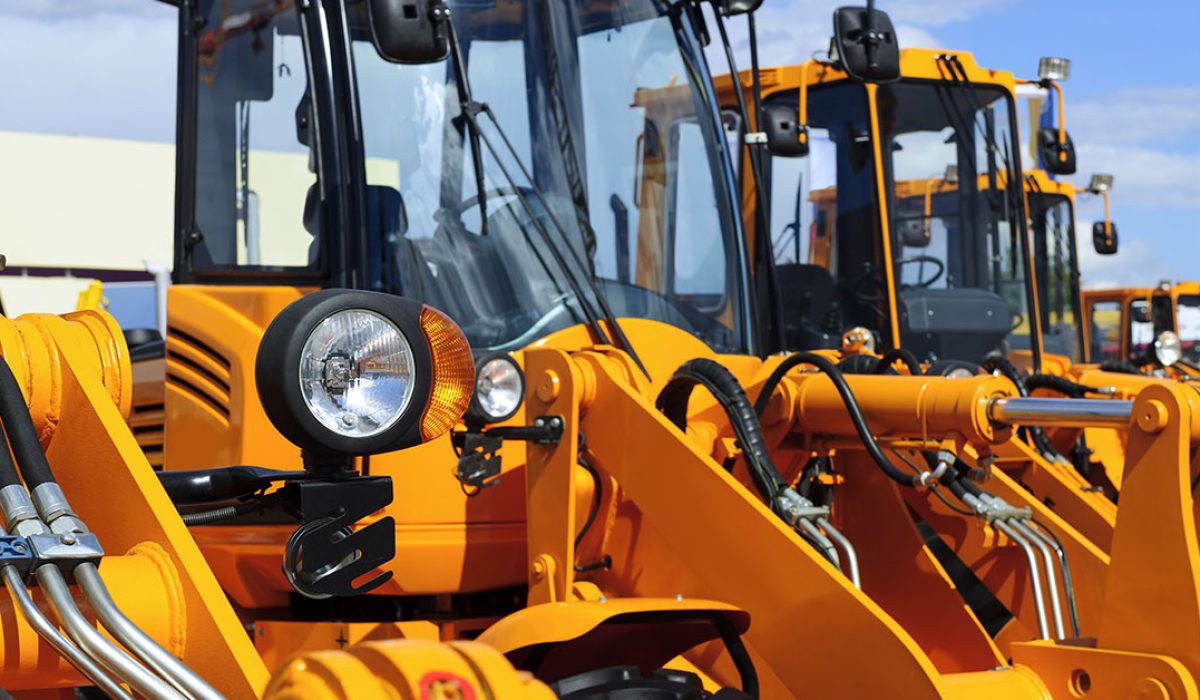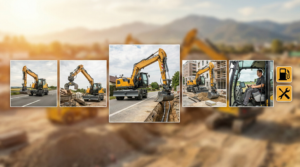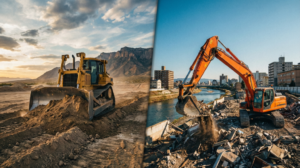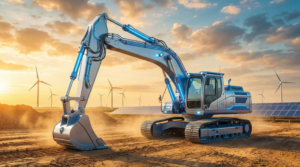Investing in used construction equipment offers numerous advantages, making it a viable option for many construction businesses. Understanding these benefits can help you make informed decisions and optimize your investments.
1. Cost Savings
One of the primary benefits of purchasing used construction equipment is the significant cost savings. New construction machinery comes with a high price tag, which can strain your budget. By opting for pre-owned heavy equipment, you can acquire reliable machinery at a fraction of the cost. This cost efficiency allows you to allocate funds to other critical business areas, such as hiring skilled workers or investing in innovative technologies. Additionally, used equipment has already undergone its initial depreciation, meaning you are paying closer to its true market value. This makes used equipment a more financially sound choice, enabling better financial planning and resource allocation for your projects.
2. Immediate Availability
Unlike new equipment, which often comes with long lead times due to manufacturing and shipping delays, used construction machinery is typically readily available. This immediacy is crucial when you need to replace broken machinery quickly or scale up operations for a new project. Vendors often inspect and refurbish used equipment to ensure it meets operational standards, allowing you to put it to work right away. This quick turnaround can be a significant advantage in fast-paced construction environments, where downtime can lead to substantial losses.
3. Better Value Retention
New construction equipment depreciates rapidly within the first few years of purchase. In contrast, used equipment retains its value better over time, making it a safer investment. This slower depreciation rate translates to a higher return on investment (ROI), especially if you plan to resell the equipment in the future. By maintaining a stable value, used machinery ensures that you can recover a significant portion of your investment when it’s time to upgrade or sell. This financial stability is crucial for long-term business planning and sustainability.
Knowing What to Look For
When buying used construction equipment, knowing what to look for can make all the difference in ensuring a good investment.
4. Assess Machinery Condition
A thorough assessment of the machinery’s condition is essential. Start with a visual inspection for signs of wear, rust, and damage. Pay special attention to heavily used parts such as the engine, hydraulics, and undercarriage. Check the tires and tracks for wear, as these components can be costly to replace. While a visual inspection can give you an initial idea of the equipment’s state, it’s advisable to hire a professional mechanic or inspector to perform a more detailed assessment. They can identify potential issues that may not be immediately apparent, ensuring that you make an informed purchasing decision.
Finding Reliable Sources
Sourcing your used construction equipment from reputable dealers is crucial to ensuring you get quality machinery.
5. Choose Established Dealers
Look for established merchants who specialize in used construction tools and refurbished machinery. These dealers often sell well-maintained equipment and may offer warranties or service agreements, providing additional security for your purchase. Established dealers have a reputation to uphold and are more likely to provide honest assessments of the equipment’s condition. Additionally, they may have a wider selection of machinery, giving you more options to choose from.
6. Explore Online Marketplaces
Online marketplaces for construction equipment offer a convenient way to compare different sellers, read reviews, and arrange inspections. These platforms allow you to research thoroughly and verify the seller’s reputation before making a purchase. By leveraging online resources, you can access a broader market, ensuring that you find the best possible equipment for your needs at a competitive price.
Assessing Equipment Condition
Thorough inspection is vital when purchasing used construction equipment to ensure it is in good working order.
7. Check Engine Performance
Start by examining the engine for oil leaks, unusual noises, or excessive smoke, which could indicate underlying issues. Run the engine to observe its behavior under various conditions. Review the maintenance records for any history of repairs or overhauls. A well-maintained engine is crucial for the longevity and reliability of the equipment, making this a key factor in your purchasing decision.
Learn More: 10 Essential Attachments for Your Mini Excavator: Enhance Versatility and Efficiency
8. Inspect Hydraulic Systems
Hydraulic systems are crucial for machinery operation. Check for fluid leaks, worn hoses, and sluggish movements, as these can affect performance. Ensure the equipment’s hydraulic functions operate smoothly. Hydraulic issues can lead to costly repairs and downtime, so it’s essential to ensure that this system is in excellent condition before making a purchase.
9. Evaluate Structural Integrity
Inspect the equipment’s frame for cracks, bends, and rust, which could compromise safety and longevity. For tracked machinery, pay close attention to the undercarriage as it experiences significant wear and tear. Ensure that tires and tracks have sufficient tread depth and are free from damage. A solid structural integrity assessment helps in determining the overall durability and safety of the equipment, ensuring that it can handle the demands of your projects.
10. Test Operational Functions
Finally, test the equipment’s operational functions, such as lifting and digging, to ensure they work correctly. Confirm that all safety features are intact and operational. Functional testing provides a practical evaluation of the machinery’s performance, helping you confirm that it meets your operational requirements and safety standards.
Checking Different Types of Machinery
Different types of used construction equipment require distinct considerations.
11. Excavators and Loaders
For excavators and loaders, check for hydraulic leaks, engine performance, and wear on the bucket or boom. Pay attention to the underage’s condition. Excavators and loaders often perform heavy-duty tasks, so ensuring their components are in top shape is critical for productivity and safety.
12. Bulldozers and Graders
When inspecting bulldozers and graders, check the blade for wear and ensure the controls and articulation points are functioning properly. Review the maintenance records for insights into the machine’s history and reliability. Properly functioning bulldozers and graders are essential for earthmoving tasks, and their reliability is paramount for project efficiency.
13. Power Tools and Smaller Equipment
For second-hand construction tools and smaller machinery, verify that all components are present and in working order. Test power tools for electrical issues and proper functionality. Smaller equipment, though less complex, still requires thorough inspection to ensure it can support your operations effectively.
14. Trucks and Mixers
Used dump trucks and mixers require drivetrain, suspension, and braking system inspections. Confirm that all safety features are operational. These vehicles are critical for transporting materials and maintaining their performance and safety is crucial for operational efficiency.
Learn More: The Comparison Between Crawler Excavator and Wheeled Excavator
15. Industrial Machinery
Inspect second-hand industrial machinery for lubrication, alignment, and signs of mechanical fatigue. Ensure the equipment is stable and structurally sound. Industrial machinery often handles intensive tasks, and its integrity is vital for maintaining high productivity and safety standards.
By following these tips, you can make informed decisions when purchasing used construction equipment, maximizing your investment and ensuring the machinery meets your operational needs.





